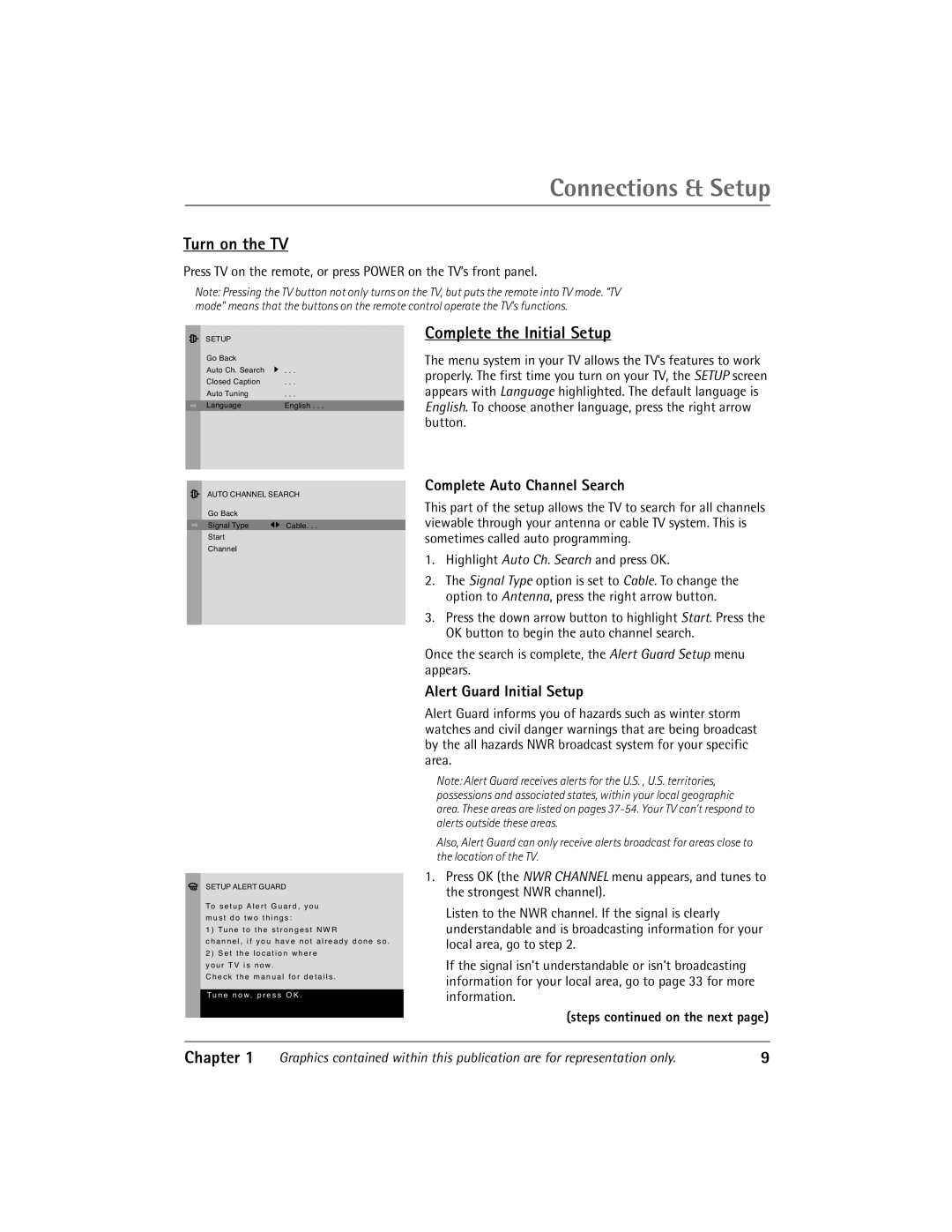
Connections & Setup
Turn on the TV
Press TV on the remote, or press POWER on the TVÕs front panel.
Note: Pressing the TV button not only turns on the TV, but puts the remote into TV mode. “TV mode” means that the buttons on the remote control operate the TV’s functions.
| SETUP |
|
| Go Back |
|
| Auto Ch. Search | . . . |
| Closed Caption | . . . |
| Auto Tuning | . . . |
| Language | English . . . |
|
|
|
Complete the Initial Setup
The menu system in your TV allows the TVÕs features to work properly. The first time you turn on your TV, the SETUP screen appears with Language highlighted. The default language is English. To choose another language, press the right arrow button.
AUTO CHANNEL SEARCH
Go Back |
|
Signal Type | Cable. . . |
Start
Channel
SETUP ALERT GUARD
To setup Alert Guard, you must do two things:
1) Tune to the strongest NWR
channel, if you have not already done so .
2)Set the location where your TV is now.
Check the manual for details .
Tu n e n o w, p r e s s O K .
Complete Auto Channel Search
This part of the setup allows the TV to search for all channels viewable through your antenna or cable TV system. This is sometimes called auto programming.
1.Highlight Auto Ch. Search and press OK.
2.The Signal Type option is set to Cable. To change the option to Antenna, press the right arrow button.
3.Press the down arrow button to highlight Start. Press the OK button to begin the auto channel search.
Once the search is complete, the Alert Guard Setup menu appears.
Alert Guard Initial Setup
Alert Guard informs you of hazards such as winter storm watches and civil danger warnings that are being broadcast by the all hazards NWR broadcast system for your specific area.
Note: Alert Guard receives alerts for the U.S. , U.S. territories, possessions and associated states, within your local geographic area. These areas are listed on pages
Also, Alert Guard can only receive alerts broadcast for areas close to the location of the TV.
1.Press OK (the NWR CHANNEL menu appears, and tunes to the strongest NWR channel).
Listen to the NWR channel. If the signal is clearly understandable and is broadcasting information for your local area, go to step 2.
If the signal isnÕt understandable or isnÕt broadcasting information for your local area, go to page 33 for more information.
(steps continued on the next page)
Chapter 1 | Graphics contained within this publication are for representation only. | 9 |
